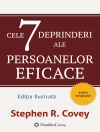A comprehensive introduction to working with people with learning disabilities, this guide provides the theoretical understanding needed to inform good practice and to help improve the quality of life of people within this group. Using accessible language and case examples, the authors discuss both psychological and practical theories, including:
* person-centred and behavioural approaches
* anti-discriminatory and anti-oppressive approaches
* systems theory
* task centred approach
* role theory.
Emphasising empowerment and inclusion of those with learning disabilities, they relate theory to issues such as loss and bereavement, sexuality and social stigma. They also provide guidance for practitioners on social policy and legislation and explore crisis intervention, values and ethics, advocacy and joint agency work, making this an extremely useful resource for social workers, nurses, teachers care workers and others working with people with learning disabilities.
Innehållsförteckning
Introduction. 1. What is a learning disability? 2. Application of theory. 3. Anti discriminatory practice and anti oppressive practice. 4. What is normalization? 5. Communication methods. 6. Advocacy, empowerment, participation and choice. 7. Universal experiences in the lives of people with learning disabilities. 8. Values, ethics and contrasting approaches. 9. Practical theories and methods. 10. Society’s influence on practice. 11. The way forward. References. Index.
Om författaren
Honor Woods is a qualified social worker with over eighteen years’ experience and is an accredited practice teacher.












